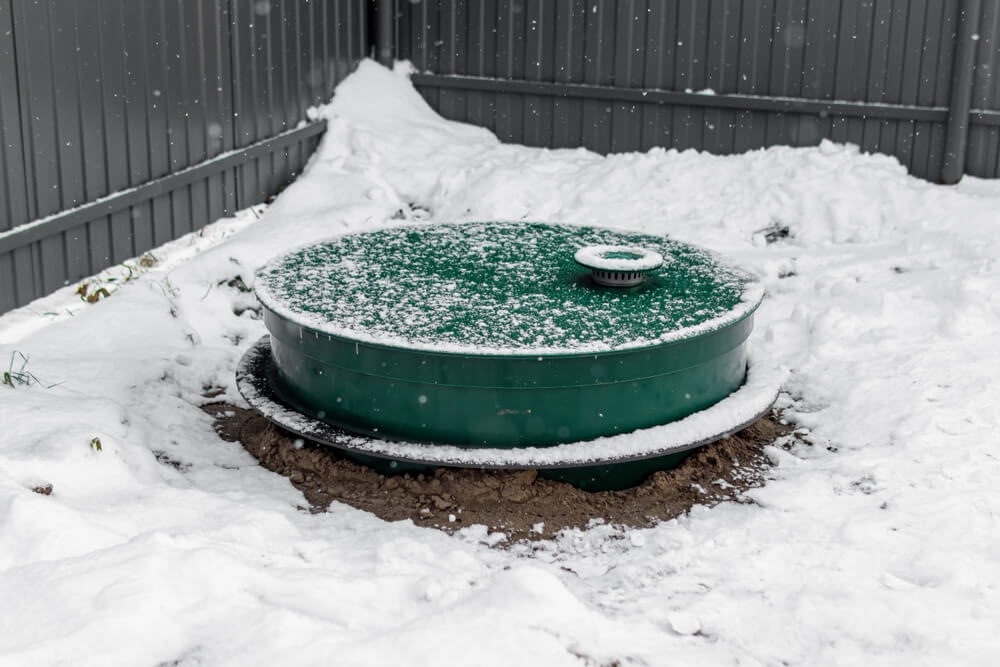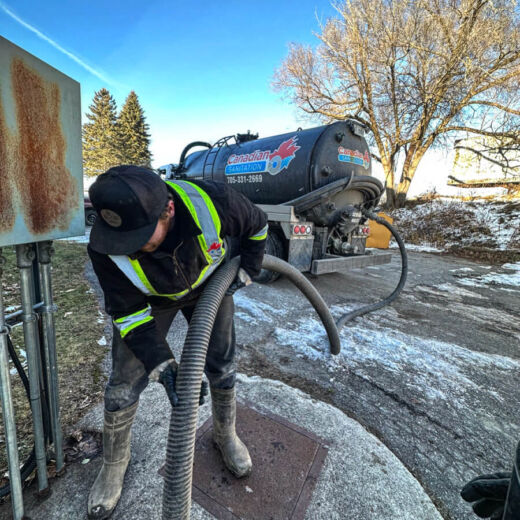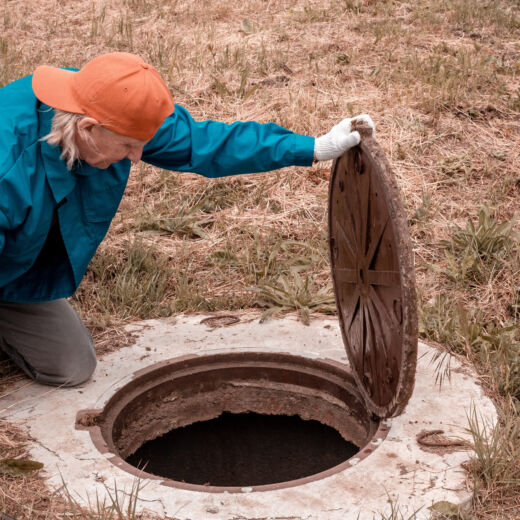Winter is just around the corner and with it comes unique challenges to septic systems. Cold temperatures, frozen grounds, and increased water usage all put added strain on septic systems during the winter months.
Without proper maintenance and routine septic system inspections, these conditions can lead to backups and other issues – something that you certainly don’t want to deal with in the middle of a frigid night.
Preventive action, like scheduling septic system inspections and following our tips below can help keep your system running smoothly all year round. Here’s what you can do to keep your septic system in top shape throughout the winter.
Tips to Prevent Septic Issues in Winter
- Avoid overloading your system – Try to stagger heavy water usage like laundry or dishwashing to reduce stress on the system. Consider installing water-efficient fixtures to cut down on overall usage.
- Keep the drain field clear – Snow piling up around your drain field can act as insulation, but avoid driving over it. The weight of vehicles can compact the soil and reduce the system’s effectiveness. Place signs around your drainfield for guests or other contractors, and clear any compacted snow as soon as you notice it.
- Add insulation if needed – An insulation layer like straw or mulch over the tank, pipes, and drain field can help protect your system, particularly when there is not enough snow and temperatures are freezing.
- Schedule a tank pump before winter – If your tank is near capacity, it’s best to have it pumped before the first hard freeze. A nearly full tank can lead to overflows and backups during winter.
- Limit chemical use – Avoid using harsh chemicals, antifreeze, or antibacterial soaps, as they disrupt the natural bacteria that help break down waste in the septic system.
- Never pour hot water down the pipes – If you’re experiencing a blockage, pouring hot water down the pipes can cause them to burst. Call a professional right away to take a look at your septic system.
- Winterize before leaving on holidays – Regular use helps keep septic systems from freezing, so if you’re planning to leave for an extended period of time, it’s best to winterize your pipes. Drain all water from the pipes and empty the water heater.
What to Expect With Septic System Inspections Before Winter
If you’re due for a septic inspection, now is the time to schedule one before the cold weather sets in. Here’s what a professional septic system inspection typically includes:
- Tank levels and condition – A professional septic technician will measure the levels of sludge and scum in the tank. If it’s near capacity, a pump is typically recommended to prevent overflows.
- Pipes and connections – Any cracks, leaks, or blockages that could cause the system to malfunction should be repaired as soon as possible.
- Drain field health – A thorough assessment of the drain field ensures that wastewater is properly absorbed into the soil. This process involves looking for signs of oversaturation or blockages that could lead to backups.
- Mechanical and plumbing equipment – This includes alarms and any associated systems. Testing and analyzing their performance ensures everything is functioning properly.
- The size of the system – It’s important to address any concerns regarding the size of your septic system in relation to the current occupancy of your home. As families grow, a system that’s too small for your household’s water usage can become overloaded.
Contact Your Trusted Septic Experts
Don’t leave your septic system’s health to chance this winter. At Canadian Sanitation, our trained technicians are ready to handle any septic issues, including thawing the system, inspections, preventative maintenance, repairs, and more.
If you need help prepping your septic system for the winter or need assistance with a current issue, reach out to us. We’re here to keep your system running smoothly all season long.




